Images of matter and what matters to you?
Historically, people labeled with intellectual disabilities (ID) have experienced stigma, discrimination, segregation, social isolation, and violence. Until today, social justice in a sense of barrier free possibilities for belonging to all parts of society is still not self-evident, regardless of juridical- theoretical guidelines. Especially on a local community level, prejudice and discrimination perpetuate blockades of the social rights of people with ID.
One of the reasons behind prejudice and discrimination is the fact that the physical presence of people with ID in parts of society like schools or participation in communal facilities leads to encounters of ‘normal’ people with the ‘otherness’ of people with ID. The sometimes problematic, unchangeable differences between people with and without ID -for example, communication skills- cannot be bridged by many people.
Art therapy literature describes art-based communities as a distinct and potentially fruitful framework in which art therapists in studio practice with people with ID can advance social justice. However, although existing literature states that arts-based communities have the potential to foster social justice for people with ID, a closer look is needed to explore this promise.
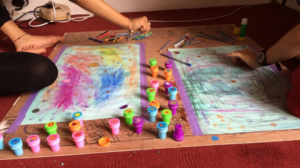
Image: this photograph was taken while Anja was working in Nepal with people who have profound ID. This experience inspired Anja’s current PhD research into art based communities as communities of care for people with ID.
Since 2020, I have been working on a PhD research on “social justice for people with intellectual disabilities through art-based communities”. After reviewing literature and interviewing people with ID about their experiences and evaluations on art-based communities, I started a subsequent project that gives expression to the experiences of participants with profound ID.
The object of this study is to understand how people with profound ID can be heard and understood about what matters to them, how engaging with art material can foster meaningful encounters, understanding, and connection, and the meaning that emerges from that understanding.
For data collection I recently started to visit four adults with profound ID on a weekly base at a daycare centre. During those relational encounters, I invite them to draw, play and paint with me. The primary data for the study will be generated through videotaping the encounters and photographing the art work. A second level data will be created through expert focus groups.
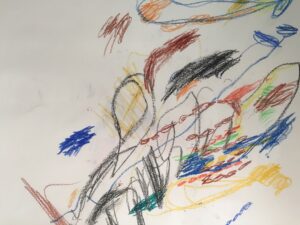
Image: this drawing is an example of the art work made during Anja’s encounters with her research participants during visits to a day program for people with ID in the Netherlands.
During my workshop, I will share two key examples that illustrate the potential of the method and invite you to reflect in small groups on:
1- What can we learn from the art-based relational encounters about what matters to the person with profound ID?
2- How does that relate to social justice for people with profound ID?
3- What are possibilities, challenges and limits when using a video camera to collect data in qualitative research?
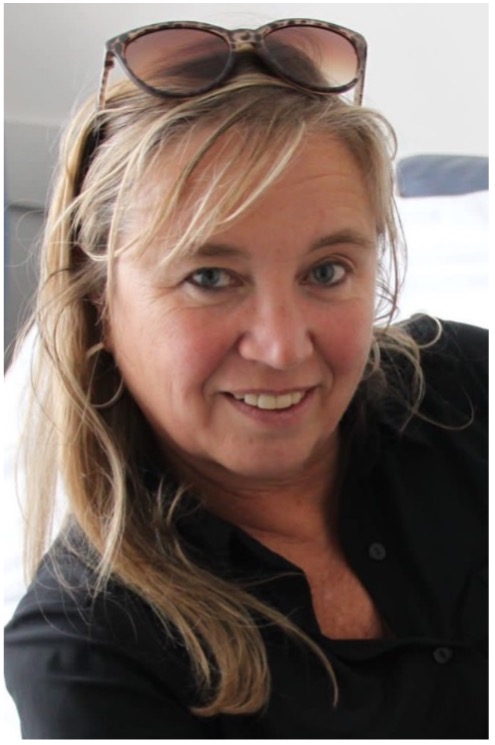
About Anja
Anja Zimmermann (MA) was born in Germany and now lives and works in the Netherlands as a passionate Art Therapy teacher and researcher. She has been a practicing Art Therapist since 1991 when she graduated with her Bachelor of Art Therapy from the HAN University of Applied Sciences in the Netherlands. Anja was the first member of her family to achieve a university degree. Since then, she has continued her studies, gaining her Masters degree in Art Therapy at the Zuyd University of Applied Sciences in the Netherlands, and followed her passion for humanistic studies in the ethics of care, social justice and human rights at the University of Humanistic Studies in the Netherlands. For the past 15 years, Anja has worked as a teacher of art therapy at HAN University.
As a researcher, she participates in the research department ‘Ethics of connection with people with intellectual disability’. She is currently engaged in collaborative research to promote “inclusive moral reflection on good care”. Since 2020 she has been working on a PhD research on “social justice for people with intellectual disabilities through art-based communities”.
We are thrilled to welcome Anja as a special international facilitator at the 2024 Creative Mental Health Forum and Self Care Retrea

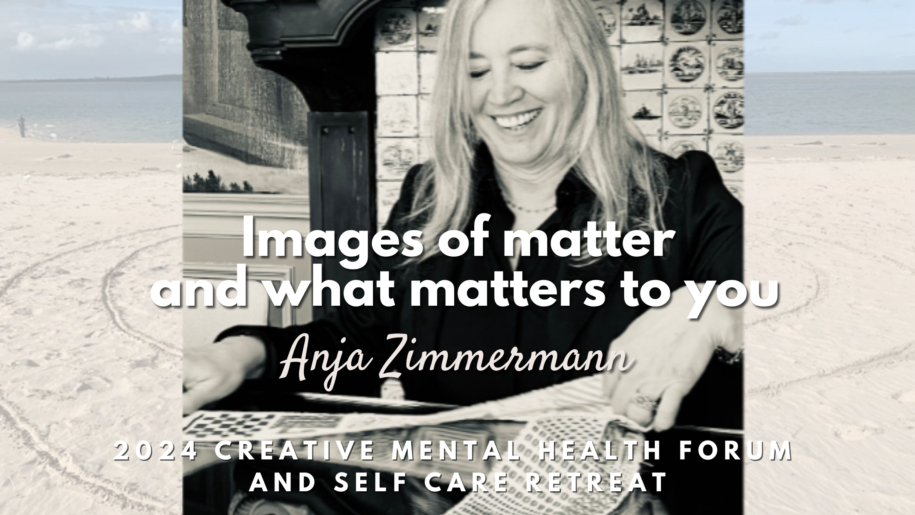
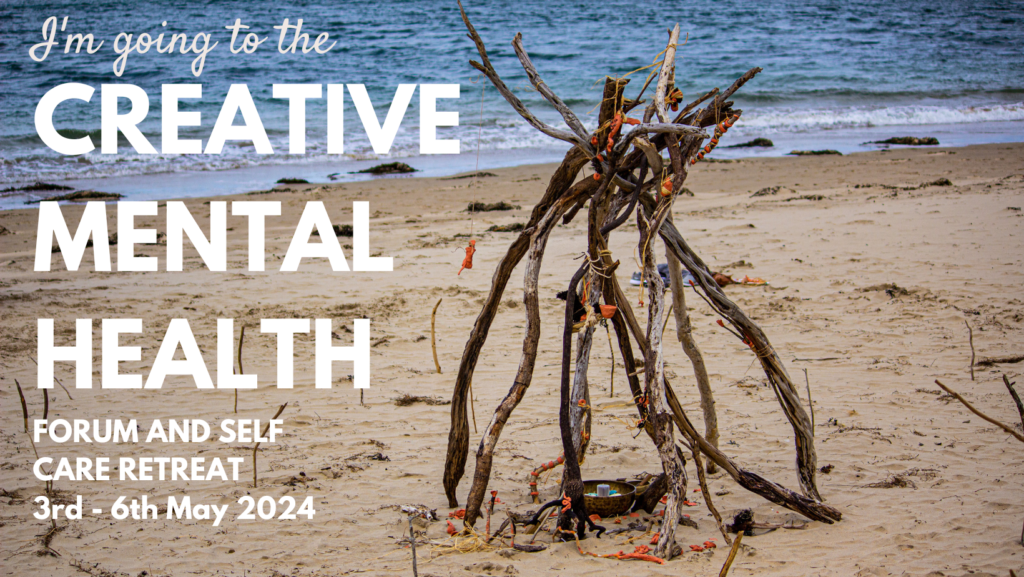
Leave a Reply